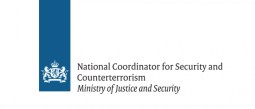In the June 2024 Terrorism Threat Assessment Netherlands (DTN), the Dutch National Coordinator on Security and Counterterrorism (NCTV) warns that extremist ideology and terrorist content is being spread via social media and other online platforms, and that these platforms enable communication between extremists and terrorists, recruitment and direction of attackers and planning of attacks.
An assessment framework for extremist and terrorist online content can contribute to a better understanding and recognition of this harmful online content, making detection more possible. One problem here is that extremist and terrorist online content can also have an implicit character and is not always easy and immediately detectable. Such harmful content is also known as borderline content.
The NCTV, through the Scientific Research and Data Unit (WODC) of the Ministry of Justice, commissioned ICCT to conduct a feasibility study into the development of an assessment framework to detect terrorist, illegal and borderline content related to violent extremism and terrorism, while respecting the freedom of expression.
The study examined a pressing and highly topical challenge: how to assess online content that may undermine democracy, threaten national security and public safety, or infringe upon the rights of others—while safeguarding freedom of expression. The central question it explores, the specific challenges identified, and the recommendations it puts forward should not be viewed in a vacuum. Rather, they are situated within a broader and increasingly complex societal and political context. A range of systemic developments shapes the environment in which this work takes place: the rise of online radicalisation, particularly among children and young adults; the expanding influence of large technology platforms and the tensions this creates with rule-of-law-based democratic societies leading to a global trend toward both techno-libertarianism and techno-authoritarianism; and the evolving role of governments as they seek to reconcile the imperatives of security, safety, and national interest with those of privacy, human rights, and minority protection. These challenges are compounded by the unprecedented speed and scale of online information dissemination, growing concerns about disinformation and foreign influence, and the urgent need to strengthen societal resilience and media literacy. While this study does not address each of these systemic issues in depth







